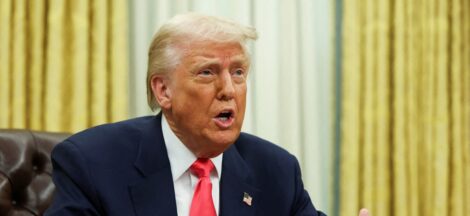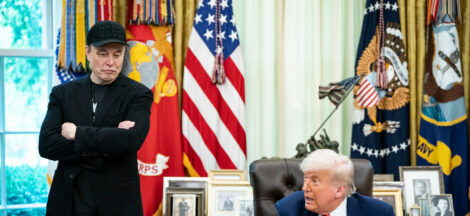The European Union has unveiled plans to impose tariffs totaling €26 billion on U.S. imports in response to the United States’ recent 25% tariffs on steel and aluminum. European Commission President Ursula von der Leyen condemned the U.S. measures as “unjustified trade restrictions” and announced that the EU would take “strong, but proportionate” countermeasures.
The EU’s retaliatory strategy involves a two-step approach. Initially, the bloc will reinstate previously suspended tariffs on a selection of U.S. products, including bourbon whiskey, jeans, and Harley-Davidson motorcycles, effective April 1. These measures aim to address the economic harm inflicted on €8 billion worth of EU steel and aluminum exports. Subsequently, the EU plans to introduce additional tariffs targeting a broader range of U.S. goods, encompassing both industrial and agricultural products such as poultry, beef, seafood, and nuts, with implementation expected by mid-April.
The U.S. tariffs, which took effect at midnight on March 12, apply a blanket 25% duty on all steel and aluminum imports. This move has raised concerns about a potential escalation into a full-blown trade war, with significant implications for global markets. Asian financial markets have already experienced severe losses, with Australia’s S&P/ASX 200 falling 4.2% and Japan’s Nikkei 225 dropping nearly 9%. Economists fear that these developments could precipitate a U.S.-led global recession.
Greek central bank governor Yannis Stournaras has warned that the U.S. tariffs could reduce eurozone economic growth by 0.5 to 1 percentage points. He highlighted the potential for a severe negative demand shock caused by escalating trade tensions, which could weaken economic activity and push inflation further below the European Central Bank’s target.
In the wake of the U.S. tariff announcement, over 50 countries have approached the U.S. to renegotiate trade terms. Nations such as Vietnam, facing a 46% tariff, have requested delays to avert significant economic damage. However, top U.S. officials have largely dismissed these negotiation efforts, maintaining that the tariffs are a response to global trade imbalances and unfair practices.
High-profile business leaders have also voiced their concerns. Elon Musk publicly criticized the Trump administration’s tariff strategy, advocating for a “zero tariff situation” between the U.S. and Europe. He specifically targeted White House trade adviser Peter Navarro, questioning his economic expertise and highlighting the complex consequences of unpredictable tariffs.




 Uproar in JK Assembly Over Waqf Amendment Bill Discussion
Uproar in JK Assembly Over Waqf Amendment Bill Discussion 